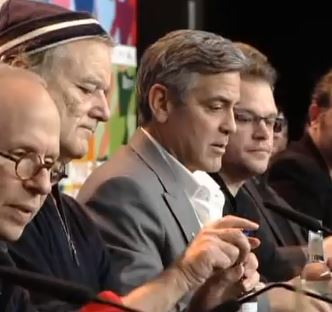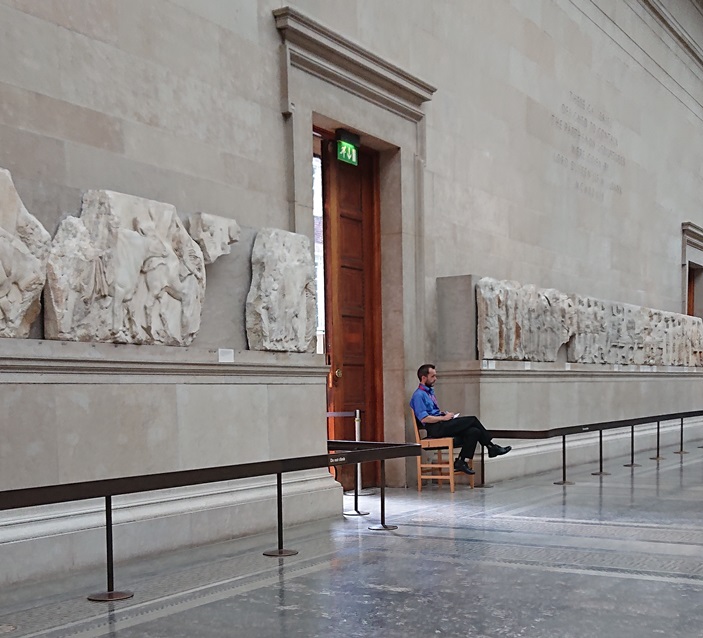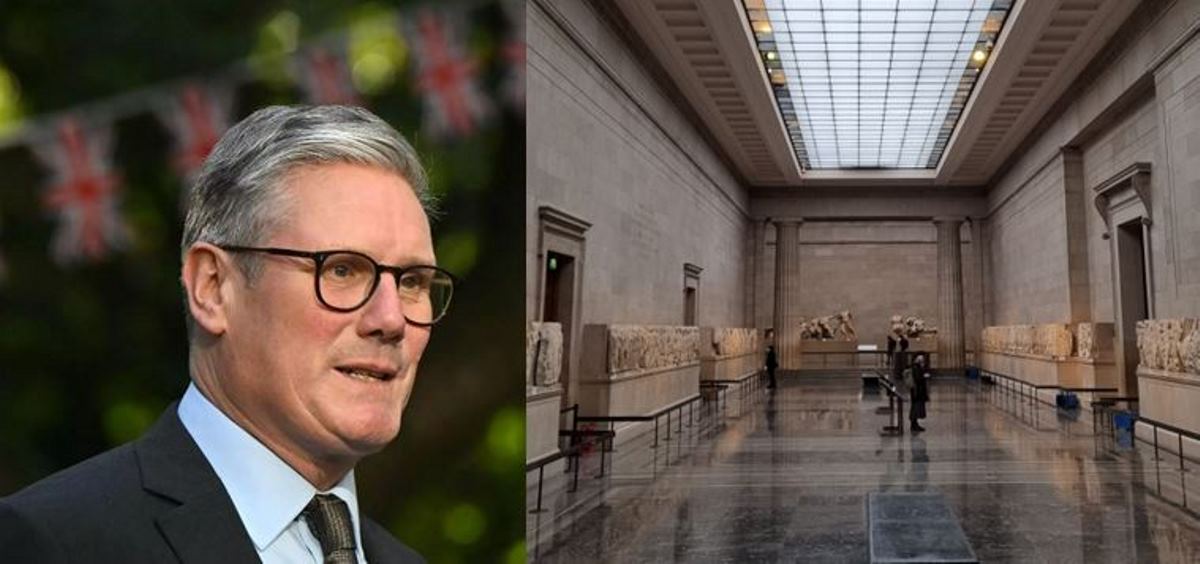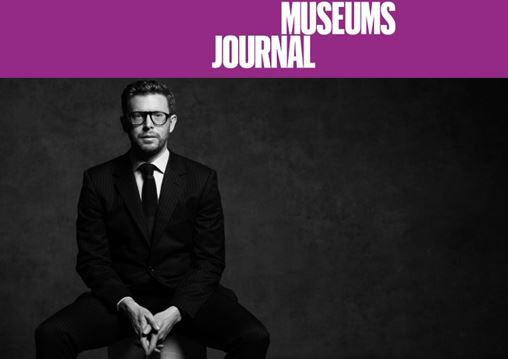On Saturday 9 February, while promoting his new movie 'The Monuments Men' – based on the second world war platoon which rescued and returned thousands of artworks stolen by the Nazis - George Clooney was asked by a Greek journalist if he thought the Parthenon marbles deserved to be in Greece. From that moment the media world has, for over a week, had a reason to reflect and question once again, why the surviving Parthenon sculptures, mainly divided between two great museums- the British Museum in London and the Acropolis Museum in Athens- continue to be fragmented. How much nicer would it be if they could be seen as a whole, displayed in the Acropolis Museum?
What seems an obvious answer to campaigners for the reunification of the Parthenon sculptures, continues to produce a varied collection of responses by journalists, politicians, academics and the average person on the street.
John Whittingdale the chairman of the Culture, Media and Sport Committee, politely suggested the actor might not really know what he was talking about. "I'm a great admirer of George Clooney, but I suspect that he probably doesn't know the history of the Elgin Marbles and the legal entitlement that Britain has to them," he said. "He's an American. I suspect he doesn't know why it is that Britain came to acquire the Elgin Marbles. There's a very strong view in this country that they should stay in the UK."
But Damon quickly chipped in: "That can't always be the British default position. I mean seriously, it's not actually an argument to say we are Americans we don't get it."
Murray said "England can take a lead on this kind of thing...."If [the marbles] were all together the Greeks are nothing but generous – they'd loan it back every once in a while … like people do with art."
But at the British Museum a spokeswoman said everyone was entitled to their view. "The trustees have always been very clear on the benefits of [their]remaining at the museum where they can be seen as part of a world collection. The purpose of the British Museum is to present the world to the world."
She added that there was "a danger of oversimplifying the issue".
The government supports the British Museum, and the shadow culture minister, Helen Goodman, said the museum had looked after the marbles brilliantly. "How would George Clooney feel if he could only act in American films shown in the US?"
Then the Mayor of London Boris Johnson had a go at George Clooney too. ”Here he is plugging a film about looted Nazi art without realising that Goring himself had plans to plunder the British Museum.
“And where were the Nazis going to send the Elgin marbles? To Athens! This Clooney is advocating nothing less than the Hitlerian agenda for London’s cultural treasures,” he told the Telegraph. “He should stuff the Hollywood script and stick to history.”
Well it seems to us that all these well educated and knowledgeable souls have missed the point yet again. Surprised? Sadly, no.
George Clooney - has a point and that is - to return the Parthenon sculpture currently in the British Museum to Greece, would be the " right thing to do."
The British Museum can still continue to display and present the world to the world. There is nothing that is being oversimplified in this request apart from the lack of understanding by the British Museum and the British government.
 Dr Tom Flynn wrote on behalf of the BCRPM: "appreciate why right thinking people continue to be appalled by Elgin's wilful desecration of a beautiful ancient building."
Dr Tom Flynn wrote on behalf of the BCRPM: "appreciate why right thinking people continue to be appalled by Elgin's wilful desecration of a beautiful ancient building."
 Professor Anthony Snodgrass, President of BCRPM also commented: “George Clooney, Matt Damon and Bill Murray have no axe to grind. They are detached and don’t have to save face unlike the British Museum, they can judge it as outsiders would do. Increasingly people not just outside this country but in Britain are not of the same opinion of the British government and the British Museum. In last week’s Guardian poll over 88% are in favour of Mr Clooney’s suggestion to reunite the Parthenon marbles in Athens. These are independent people like Clooney, Damon and Murray.”
Professor Anthony Snodgrass, President of BCRPM also commented: “George Clooney, Matt Damon and Bill Murray have no axe to grind. They are detached and don’t have to save face unlike the British Museum, they can judge it as outsiders would do. Increasingly people not just outside this country but in Britain are not of the same opinion of the British government and the British Museum. In last week’s Guardian poll over 88% are in favour of Mr Clooney’s suggestion to reunite the Parthenon marbles in Athens. These are independent people like Clooney, Damon and Murray.”
 Eddie O'Hara, Chairman of BCRPM added :
Eddie O'Hara, Chairman of BCRPM added :
1. Mr Clooney's intervention is welcome for at least two important reasons. First, he is highly regarded as an artist of high intelligence and sensitivity who is not afraid to take a principled stance on matters of serious concern. WE are pleased that in this case he is prepared to support the case for the return of the Parthenon sculptures to Athens. Second, we always find that when the public are made aware of the issue they consistently by a large majority support reunification of these sculptures. When a high profile personality such as Mr Clooney joins in the debate this dramatically raises public awareness and therefore public support.
2. Boris Johnson's comment is facile. It is typical argument by juxtaposition. He cleverly uses the subject of Mr Clooney's film (Nazi looting of art) as an argument against him. But the subject of the film is RESISTANCE to Nazi looting.
3. Our campaign is already very active on a global basis. We have had two global colloquies in the past two years (2012 in London, 2013 in Sydney) and a third is planned for next year. Video proceedings from these and an increasing amount of other visual material is available on line, as well as much traffic in the social media. The publicity from Mr Clooney's intervention will increase access to these, as well as generating much traffic in itself. This is all good for our purpose of raising public awareness.
4. We regularly remind our politicians and the cultural establishment that they are out of step with public opinion on the issue of the reunification of the Parthenon Sculptures. This development provides an opportunity for a new initiative.






Comments powered by CComment